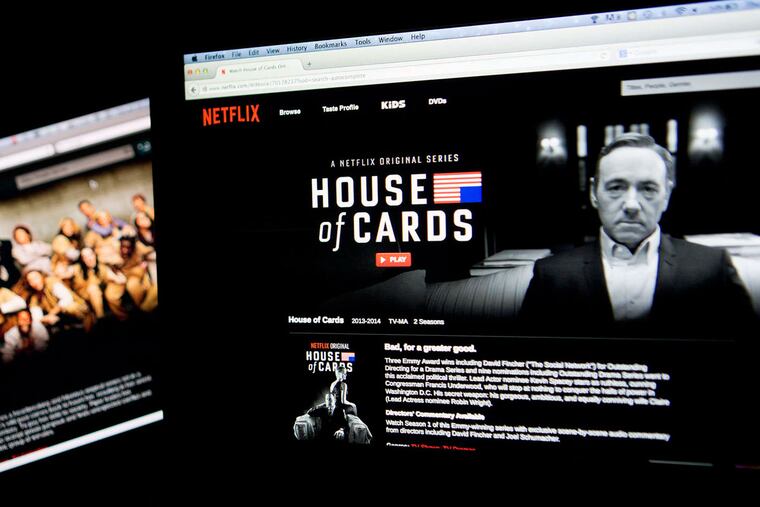'Employee first' mentality is good for business
Not many companies can boast returns of more than 4,000 percent over the past decade. But Netflix can.

Not many companies can boast returns of more than 4,000 percent over the past decade. But Netflix can.
The company - or rather the talented people behind it - achieved these returns by revolutionizing the way we watch television and movies. That revolution would have been impossible without Netflix's unique work culture. Codified in a 124-slide manifesto that more than 11 million people have viewed, that culture gives employees huge amounts of freedom in exchange for high performance.
This manifesto is best described as a framework for "social capitalism." And it's required reading for any executive hoping to understand the benefits of a people-first mentality. This model is what the millennial generation is demanding. And research is beginning to show that employers that follow it are more profitable in both the short and long run.
This cultural revolution isn't confined to Silicon Valley. Companies from Trader Joe's to Harley-Davidson are shifting from classic capitalism's fixation on the bottom line to social capitalism's focus on people.
They have had to in order to persuade millennials - the best-educated, most technologically savvy, and most populous pool of workers in the United States - to join their companies.
According to organizational culture expert Gustavo Grodnitzky, millennials "work harder for cause than for cash." Indeed, a survey conducted by the Case Foundation discovered that 55 percent of millennials took a job with a company in part because of its cause-oriented activities. Ninety-two percent believe that their employers are creating positive change in the world.
Keeping employees happy, motivated, and engaged in their work is a financial imperative. Replacing an employee who leaves can cost as much as 150 percent of that employee's salary. At companies where workers are consistently rewarded for achievements, employees are seven times more likely to stay put. And their commitment to their work increases seven-fold.
Putting people first doesn't require company-sponsored trips to Hawaii à la Salesforce. The approach just requires some common sense - from compensating employees competitively to allowing them to use social media at work.
Consider the cases of Costco and Sam's Club. The former pays its employees about $20 an hour and provides upwards of 90 percent of them with retirement plans. The latter reportedly pays around $11 an hour and offers about two-thirds of its workers retirement plans.
At first glance, Sam's Club would seem to have the better grip on labor costs. But according to Harvard Business Review, employee turnover costs Sam's Club more than twice as much as it does Costco. The extra tab for Sam's Club amounts to hundreds of millions of dollars.
Costco's higher wages also buy more productive workers. The chain's 129,000 employees gin up sales north of $112 billion. Sam's Club has slightly fewer workers - about 110,000. But at $58 billion, its annual revenues are half as large as Costco's.
Or consider Wegmans Food Markets. The family-owned chain never forces its employees to retire, invests in hunger relief, and flies its deli managers to Italy for the ultimate cheese education. The company's employee turnover rate is half that of its peers.
Sometimes the key is empowering employees to see the way their work can change the world. At my company, KI Furniture, our workers are turning out products made of ever-increasing amounts of recyclable and renewable materials - 177 of which have been certified as sustainable.
Moreover, each and every chair we make financially empowers both our company and our employees to improve the lives of others through charitable efforts, whether they're company-sponsored or undertaken personally by our staff.
Trust is another way to make employees feel appreciated. Netflix asks employees to follow a simple, five-word expensing policy: Act in Netflix's best interest.
Employers' investments in their people pay off. Gallup reports that strong employee engagement can bump up a company's earnings per share by 147 percent. According to research from two Harvard Business School professors, companies with strong corporate cultures centered on people - employees, customers, and owners - have four times the revenues and 12 times the stock prices of companies that don't.
The newest generation of American workers is not content with just a job. They want a workplace that cares about them - and about the people beyond the four walls of the office. Instead of simply clicking through Netflix's culture manifesto, it's time for companies to one-up it.
Dick Resch is CEO of KI Furniture in Wisconsin. dick.resch@ki.com